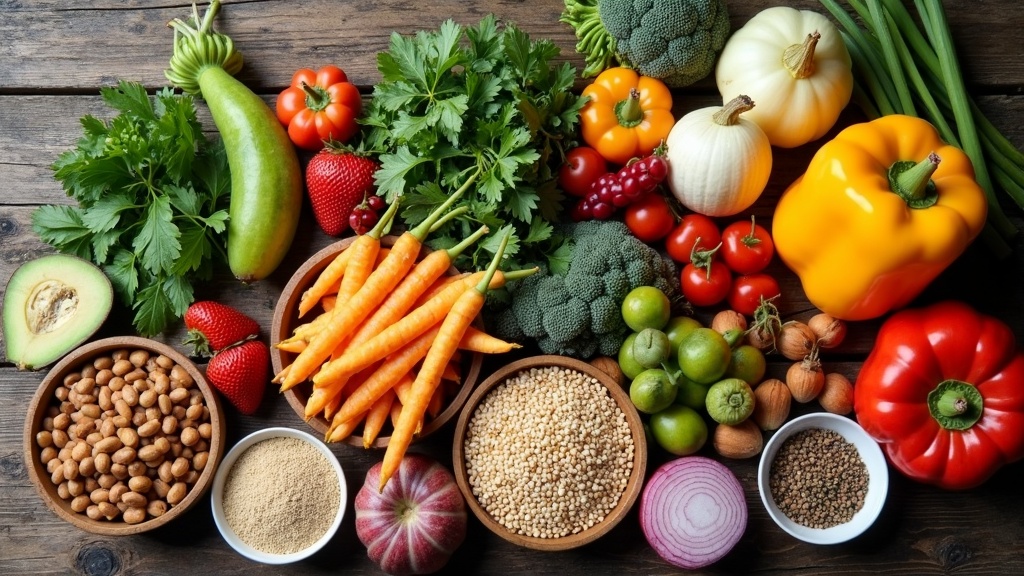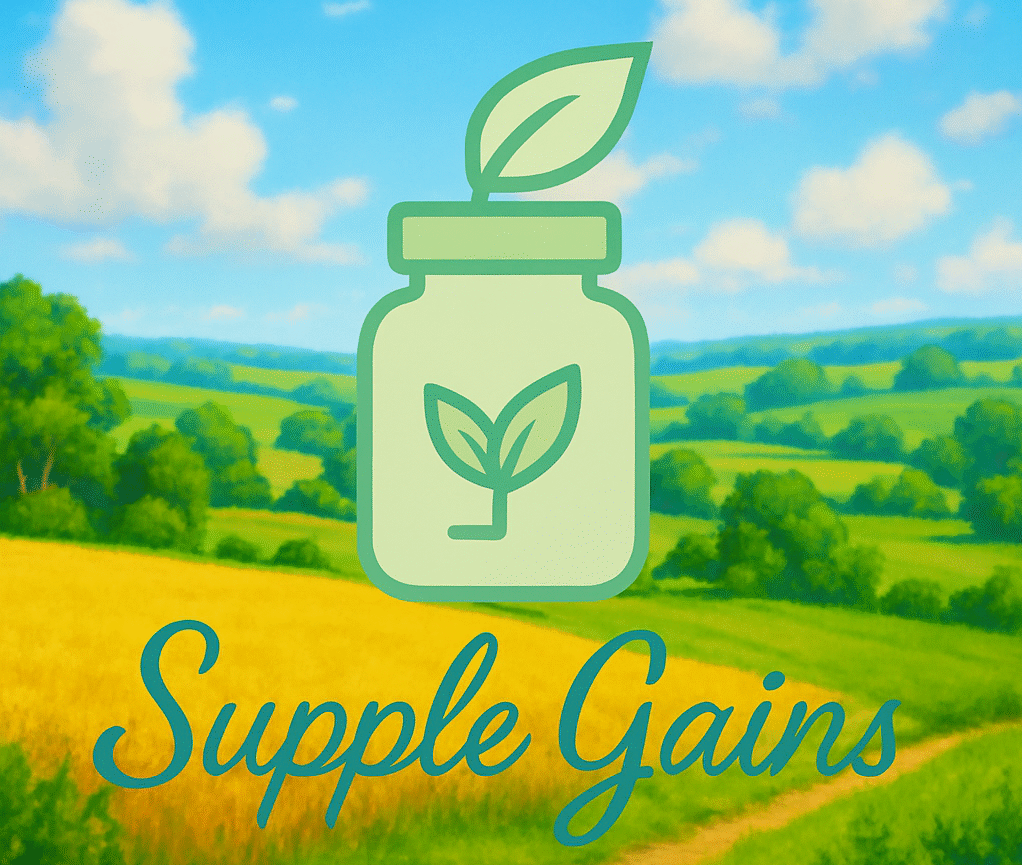Switching to a plantbased diet can have a real impact on how you feel daytoday, especially when it comes to digestion and gut health.
Over time, I found that eating more plants doesn’t just support the environment.
It’s also pretty friendly to my own digestive system.
If you’ve been thinking about cutting back on meat or dairy to help your stomach feel less upset, you’re definitely not the only one.

Why PlantBased Diets Support Digestion
Eating more plant foods, like fruits, vegetables, beans, whole grains, and nuts, means you’re getting a load of fiber, vitamins, and antioxidants.
These nutrients play a pretty important role in how smoothly things move through your gut.
Plantbased diets are naturally rich in both soluble and insoluble fibers.
Soluble fiber helps form a gellike texture in your gut that keeps your stool soft, while insoluble fiber bulks things up so everything passes through faster and easier.
Several big research reviews, including those published in Nutrients, show that highfiber diets lower constipation and support a more regular bathroom schedule.
Plus, plant foods also fuel the good bacteria living in the gut, which keep things running smoothly and help reduce bloating and gas.
How Your Gut Microbiome Benefits from Plants
Your gut is home to a huge community of microbes, often called the gut microbiome.
When you eat more plantbased foods, you feed these microbes, helping them thrive and do their jobs.
Foods like lentils, oats, berries, and broccoli contain prebiotics, which are basically a buffet for friendly gut bacteria.
A steady diet of plant foods leads to a more diverse and balanced microbiome, which is linked to everything from less bloating to having a stronger immune system.
According to a 2021 study published in Nature Medicine, people who follow diets rich in plants have more gut bacteria linked to lower inflammation and better digestive comfort.
Getting Started with a PlantBased Diet for Digestion
Moving toward a plantfocused lifestyle isn’t about totally giving up animal products all at once.
I started out by adding more colorful salads, roasted veggies, and bean soups to my week.
Focusing on what you can add, not what you’re taking away, makes everything feel more doable.
- Go Slow With the Fiber: Suddenly loading up on fiber can leave you feeling gassy or bloated. It’s usually better to add new fiberrich foods little by little and drink plenty of water so your gut doesn’t get overwhelmed.
- Try Fermented Foods: Foods like sauerkraut, kimchi, plantbased yogurt, and miso are packed with probiotics that help balance your gut.
- Mix Up the Plants: Eating a mix of beans, nuts, whole grains, fruits, and veggies gives your gut bacteria more to work with and keeps your meals interesting.
Simple StepbyStep PlantBased Gut Health Guide
Building gutfriendly meals doesn’t have to be boring or complicated.
Here’s a stepbystep rundown of what’s worked well for me and others who focus on good digestion:
- Fill Half Your Plate With Vegetables: This could be leafy greens, steamed broccoli, carrots, or whatever is in season.
- Add Whole Grains: Brown rice, quinoa, barley, and oats are loaded with fiber and help keep things moving in your digestive system.
- Include Plant Proteins: Chickpeas, lentils, tofu, or black beans work great in everything from salads to stirfries.
- Don’t Forget Healthy Fats: Avocados, flaxseeds, walnuts, and olive oil support gut lining health and help your body absorb more nutrients.
- Snack Smart: Swap chips for apple slices with almond butter or carrot sticks with hummus. These snacks pack a fiber punch with a little protein and healthy fat.
These meal tricks make it easier to keep your gut happy without feeling restricted.
Common Challenges and How to Handle Them
Moving to a plantbased diet can come with a few ups and downs.
You might notice some changes in your digestion as your body gets used to all the extra fiber.
Here are a few things I wish I’d known early on:
- Gas and Bloating: These are super common when you up your fiber. Swapping in new plant foods a bit at a time helps your body adjust.
- Getting Enough Protein: It’s actually not hard to get enough protein from plants, but it’s worth mixing things up. Use lentils, beans, tofu, tempeh, and seeds in different meals.
- Meal Planning: Prepping your grains, soaking your beans, and chopping veggies ahead of time saves a ton of hassle during the week.
- Staying Hydrated: Water helps fiber work its magic, so keep a water bottle close, especially as you increase the amount of plant foods in your diet.
Handling Gas and Bloating
Most people notice more gas or bloating when switching to plantbased eating, especially if they get into beans or cruciferous veggies (like broccoli and cauliflower) fast.
I found that soaking and cooking beans well, chewing slowly, and trying new veggies in small amounts makes a huge difference.
Herbal teas, especially peppermint and ginger, are worth a shot if your stomach feels off during the transition.
Protein Powders and Supplements
If you’re worried about low protein or missing nutrients like B12 or iron, using a good quality, plantbased protein powder or a daily supplement makes things easier, especially at the start.
Registered dietitianrun resources like EatRight.org can help you figure out what supplements you might actually need for balance.
Tips for Advanced Gut Health on a PlantBased Diet
After you’re comfy with the basics, there are a few extra tricks that can help take your gut health up a notch:
Rotate Your Plant Foods:
Try not to stick with just the same handful of veggies or grains.
Eating a wide variety (aiming for 30 different plants per week if you can) feeds lots of different types of gut bacteria.
Eat Fermented and Sprouted Foods:
Incorporate things like tempeh, miso, or sprouted lentils for even more digestive benefits.
Fermentation and sprouting boost nutrients and make them easier for your gut to handle.
Focus on Resistant Starch:
Cooked and cooled rice, potatoes, and green bananas are all good sources.
Resistant starch acts like a prebiotic, giving your gut bacteria something to work on and supporting regularity.
Putting these ideas into practice can really help if you want to take your digestive health to the next level on a plantbased diet.
Plus, experimenting with dishes like sprouted lentil salads or miso soup can keep your taste buds excited while looking after your gut.
Everyday Staples to Stock Up On
Having a few plantbased essentials in your kitchen helps you pull together guthealthy meals anytime. Here are a few things I keep handy:
- Lentils and Canned Beans: Gotoplan tproteins. Lentils cook quickly and are great in soups or salads.
- Rolled Oats and Barley: Whole grains for breakfast or grain bowls. Huge on fiber.
- Leafy Greens: Spinach, kale, collards—super versatile for smoothies, salads, or sautés.
- Fermented Foods: Sauerkraut, kimchi, miso, and nondairy yogurts boost beneficial bacteria.
- Seeds and Nuts: Flaxseeds, chia, sunflower seeds, and walnuts for healthy fats and crunch.
- Colorful Veggies: Carrots, beets, bell peppers, and squash add nutrients and flavor to any meal.
If you want even more variety, try adding whole grain pastas, quinoa, or edamame to the mix.
Each of these staples is versatile, making it simple to whip up gutfriendly, satisfying meals.
Frequently Asked Questions
Here are some questions I’ve heard a lot about plantbased eating and gut health:
Q: Can a plantbased diet cause digestive issues?
A:
For most people, switching leads to better digestion, but going too fast with fiber can cause gas or bloating. Ease in, and drink water to help your gut adjust.
Q: Do you need to take supplements on a plantbased diet?
A:
Some people find it helpful, especially for things like vitamin B12 or iron. If you’re not sure, talk to a dietitian.
Q: Are all plantbased foods equally good for digestion?
A:
Not really! Whole foods (like beans, vegetables, whole grains) pack more fiber and nutrients than ultraprocessed options. Stick to foods that look close to how they grow.
Wrapping Up
Focusing on plantbased foods does more than just support overall health.
It’s genuinely good for your digestion and gut.
The trick is to start at your own pace, keep meals varied, and let your gut adjust over time.
Real change doesn’t happen overnight, but the difference in energy, comfort, and even mood is often worth the switch.
Keeping a few basics stocked and knowing some troubleshooting tricks for gas or bloating helps set you up for success.
Trying out new plant foods and creative recipes keeps everything fresh and fun, so you’re more likely to stick with it for the long haul.
If you keep experimenting and listening to your body’s cues, you’ll probably notice positive shifts in how you feel each day.
